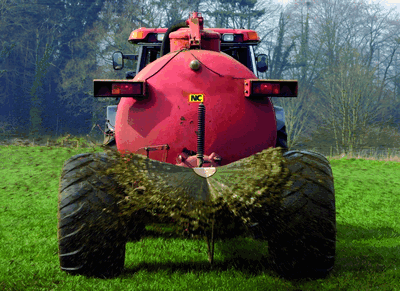DEFRA told to implement ‘flawed’ nitrates legislation

DEFRA secretary Hilary Benn has been advised by a cross-party committee of MPs to implement a new Nitrates Action Programme, even though the EU Directive on which it is based is flawed.
The Environment, Food and Rural Affairs Committee explains in a report published on Tuesday (10 June) that the UK is facing a legal challenge from the EU over its implementation of the 1991 Nitrates Directive.
Failure to respond satisfactorily will lead to severe fines.
DEFRA has therefore published a number of proposals for revamping the Nitrates Action Programme.
These including increasing the area of England classed as Nitrate Vulnerable Zone (from 55% to 70% or 100%), extending the closed periods for spreading organic manure (from two-to-three months to five-to-six months) and increasing slurry storage capacity (to 26 weeks for pigs and poultry, and 22 weeks for other livestock).

DEFRA also wants a 170kgN/ha basic limit on muck spreading and the compulsory growing of over-winter cover crops.
In its report, the EFRA committee insists that the whole Nitrates Directive is flawed, being based on questionable science. But it accepts that the legislation won’t go away and therefore DEFRA has no choice but to comply.
“DEFRA needs to strike a balance between satisfying the commission and convincing farmers that the changes are fair and proportionate,” said EFRA committee chairman Michael Jack. “Then DEFRA could make the case for changes to the Directive.”
With regards to DEFRA’s specific proposals, the committee says some are sensible, but it rejects the idea of making all of England one big NVZ and says slurry storage capacities should be closer aligned to closed periods.
It also rejects the idea of compulsory cover crops, which is not even mentioned in the Directive.
“DEFRA must also bear in mind the economic impact its proposals will have on the livestock and dairying sectors,” said Mr Jack.
The EFRA committee says farmers will need four years, not two, to comply. And, in the absence of grant funding, it calls on the Treasury to provide enhanced tax allowances for the construction of slurry stores.
This call was welcomed by NFU president Peter Kendall. “With up to 5000 new slurry stores needed and costs averaging £50,000 a farm, government must provide help to invest – just as other member states are doing across Europe.”

